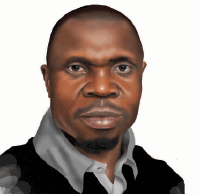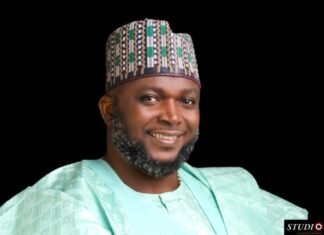It was with mixed feelings that I received the news of the removal of the executive chairman of Subsidy Reinvestment and Empowerment Programme (SURE-P), General Martin Luther Agwai.
I have always admired the retired General for various reasons. Agwai parades a well-groomed physique; a product of years of hard training and discipline. His clean, lush white hair, spread thinly across his well-shaped head betrays his youthful look but adds value to his celebrated deep intellect. His polished look, athletic build, and, wait a minute…those captivating, trademark smiles are symbols of an inner mind at peace with itself.
Agwai has accomplished in the military what every soldier would wish to. Proven to be highly cerebral, he rose through the ranks to become the Chief of Army Staff (COAS) and then Chief of Defence Staff (CDS).
At retirement, the United Nations (UN) and the African Union (AU) refused to allow him the much desired rest after a rewarding military career, which took him to war theatres and training grounds around the world.
They threatened to give him another uniform to wear if that of the Nigerian Army no longer fitted him. He was more or less bundled to Darfur to command the AU-UN peace-keeping force.
Despite the deadly atmosphere, Agwai made Nigeria proud and left some of his colleagues around the world seething with jealous. He put Nigeria and its military on the world map of respect.
I recall watching him answer questions with such ease and confidence on the famous BBC programme, Hard Talk. He was a delight to watch.
When Agwai was appointed to head SURE-P, I considered that a well-thought out attempt at bringing discipline and principled leadership to the organisation at the exit of the respected technocrat, Christopher Kolade.
Whether he did a good job at SURE-P remains a judgement of history. I do not know Agwai personally. However, even from a distance, I perceive him to be a man of integrity; with an independent mind.
When I read the story of his presence at General Olusegun Obasanjo’s birthday, I knew it would take serious political manoeuvring for him to escape punishment because, in politics, when the stakes are high, the friend of my enemy becomes my enemy.
Obasanjo was twice Agwai’s commander-in-chief. First, when the former served as a military dictator and Agwai was an up-and-coming officer in the army; and later when the latter served as service chief under Obasanjo as president.
In addition, the All Progressives Congress (APC) presidential candidate and Obasanjo’s new-found political ally, General Muhammadu Buhari, was also Agwai’s commander-in-chief.
There is something cultic or religious about military loyalty. When a soldier chooses to be loyal, he does so without looking back. In the same manner, when he chooses to be treacherous, he cares little about the consequences.
Agwai’s decision to ignore President Goodluck Jonathan’s warning (if there was any) to stay away from Obasanjo’s birthday anniversary had two sides to it. First, it was a display of loyalty to his former bosses; and second, it was a way of saying to hell with dirty politics.
Again, as a war-tested soldier, perhaps, Agwai did not see anything wrong in honouring his former boss’ invitation to speak at the event despite the recent political animosity between Jonathan and Obasanjo.
In addition, his well-crafted speech showed that he must have been looking for an opportunity to speak his mind on certain issues which he believed should occupy everyone’s mind as the presidential election draws close.
It is also possible that Agwai was tired of serving, seeing problems and remaining silent in an administration whose conduct of state affairs he did not agree with. For once, he decided to speak his mind and damn the consequences.
However, Agwai must have mistaken professional loyalty to his senior colleagues and bosses, Obasanjo and Buhari, to be superior to his loyalty to his employer and commander-in-chief; Jonathan.
In his speech, he said: “The world has changed and continues to do so in a very profound and disturbing way. The future is already here in the present, and, for most leaders and nations, it may have come as a surprise or shock.
“In this new reality of chaos, uncertainty, inter-dependency and opportunities, the challenges for leaders are greater and the need for a new type of skilful and competent leadership becomes more urgent.
“The challenges being presented to the leaders of the present and the future are greater and can be divided into three components – changing challenges to leadership, changing social structure and changing economic dynamics. The only constant factor in all the three components is change and that is part of what…is to be addressed by the leaders of today and tomorrow.”
Though he spoke so much about change, which is the theme of Buhari’s and APC’s presidential campaign, Agwai took a hit at transformation, which is Jonathan’s and PDP’s campaign slogan.
For making that speech in the manner that he made it, and for defying his boss’ order not to do it, Agwai has been accused of insubordination. In the military, that attracts stiff punishment.
Jonathan has already faced a lot of backlash for sacking Agwai. In the APC camp, Agwai is a hero, a symbol of resistance and may already be pencilled as National Security Adviser (NSA) in Buhari’s dream administration.
It’s good to ask: if Agwai were to do what he did under Obasanjo or Buhari’s administration, what do you think would have been his fate?
Who really, under the circumstance, was Agwai supposed to be loyal to: his military colleagues or his employer? Hmmmm!













